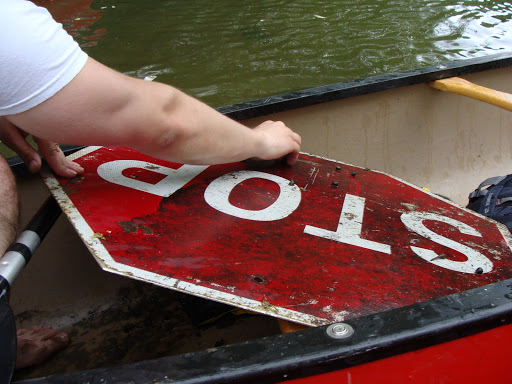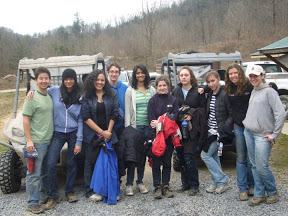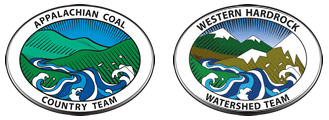Based on the work of
Morris Creek Watershed Association
Southern West Virginia
Morris Creek Watershed Association (MCWA) works directly with people that come to their watershed to ride all terrain vehicles (ATVs) or go off-roading. The watershed has prime terrain for off-road recreation and MCWA is able to give visitors access to these areas in return for some volunteer service. Visitors help with water sampling in remote areas that are difficult for traditional volunteers to access, lead watershed tours to educate local residents, and clean up trash in the creek. These volunteers were critical to the formation of the group. In recent years, MCWA has hosted “work a day, play a day” weekend events, where members of a 4×4 club come and clean up trash one day, then ride the trails the next. These events have been very successful and fun for the group and volunteers.

Tested by
Rural Appalachian Improvement League
Southern West Virginia
The abandoned mine lands of southern West Virginia are often well-suited for off-road recreation, leading Rural Appalachian Improvement League (RAIL) to tap into the people using the land as a resource to also keep the area clean. There are many people, both local and visiting, that often ride the local trail systems such as the Hatfield-McCoy Trails and Burning Rock Outdoor Adventure Park. These trails, therefore, are a key component in the local business and tourism industry. RAIL wanted to focus on litter which required alteration to the planning and implementation of MCWA’s “work a day, play a day” concept.
RAIL decided to plan an ATV Poker Run/Trail Clean-up event where volunteers would pick up litter on sections of the Indian Ridge trail, a part of the Hatfield-McCoy Trails system near Mullens, WV. Upon completion of the trail ride and litter clean-up, volunteers would receive the first of five playing cards. The following day volunteers would have a chance to ride other trails, stopping at four other locations and acquiring four new playing cards. The rider with the best hand would win a prize at an end-of-day BBQ. RAIL worked with the director of the trail system and contacted local campgrounds and businesses for food and prize donations, but general interest and willingness to help was low. The biggest problems were finding ATV riders that were willing to spend their valuable recreation time and money doing a litter clean-up and conducting the major outreach effort necessary with a small, overworked staff.
Even though the Poker Run event fell through, RAIL was able to follow a different route. RAIL has the capacity and facilities to host alternative spring break groups and has successfully hosted hundreds of students. The Mullens Opportunity Center is a converted grade school that houses offices and meeting rooms for local programs and services, including kitchen, bath, and sleeping quarters often sought by visiting volunteer crews. With these facilities available, RAIL incorporated an ATV ride and litter clean-up of Hatfield-McCoy trails into an alternative spring break trip for students from Columbia University in New York. Fifteen visiting students used ATVs for a Hatfield-McCoy Trail clean-up. Participants were able to clean 10 miles of trails with donated equipment that included electric hedge trimmers, hand-held hedge trimmers, machetes and Kawasaki Teryx ATVs.

“The success was in getting a section of trail maintenance done, while also engaging an alternative spring break group in a different aspect of mountain culture than they might otherwise see. This was important for them to understand that West Virginia is not all poverty and helplessness.”
-Rural Appalachian Improvement League
